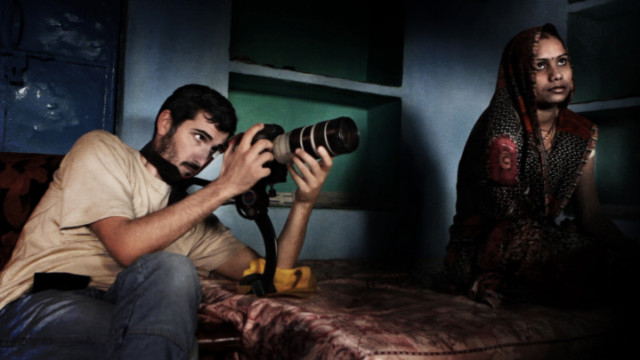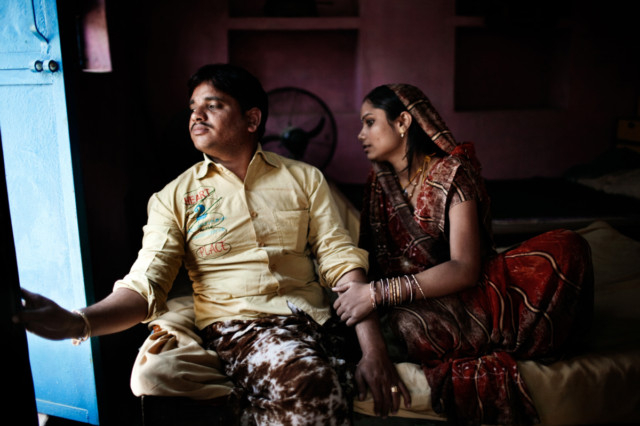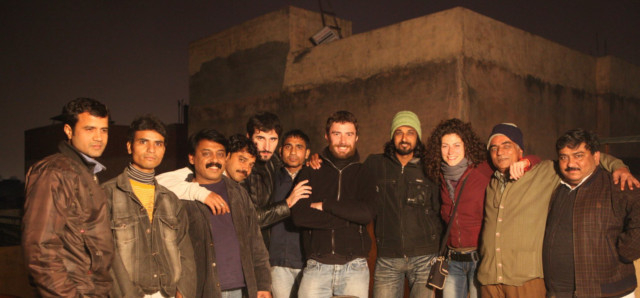
Italian director Gianpaolo Bigoli is constantly looking for themes and stories that can take him to different locales and pose new challenges. One day, in 2010, when a photojournalist friend returned to Italy after an assignment in India and happened to mention how young couples in love were being killed there in the name of “honour”, Bigoli was flabbergasted.
He could not think beyond. The idea got stuck in his mind. “After further discussions with my friend Marco Gualazzini, other aspects came to light. One, that ‘honour killings’ were carried out at the behest of caste councils (khap panchayats) over which the Indian government had no hold. Two, a person called Sanjoy Sachdev had opened his doors for couples on the run and was shielding them.”
Bigoli became aware of how couples from all over the country had been approaching Sachdev, who had launched an NGO, Love Commandos, that provided them shelter. “I had a theme to tackle, but the subject was extremely difficult as I realised that it might be quite a task to convince the couples to work in the film,” he says.
Without wasting time, Bigoli packed his bags and left for India. Soon, he was discussing with Sachdev the documentary film he wished to make. And after two years of painstaking efforts, “Love Birds: Rebel Lovers in India” was completed.
Recently, when it premiered at the International Documentary Film Festival in Amsterdam, it received rave reviews. The 52-minute film is written and produced by Mariachiara Illica Magrini.
It begins with a shot of a nervous and wary couple, Sanjay and Arti, who step out from a train and find their way to one of the shelters provided by Love Commandos in Delhi. As their story unveils, one learns about the threats they faced from the villagers and that they preferred to flee their respective homes than get separated.
More stories emerge, including that of a Muslim woman, Famida, who married a Hindu boy, Lokendra. Famida relates how her family has issued a threat that the day they are located, they would be killed.
The film further talks about Karunesh, accused of abducting his wife Renuka. The couple is, in fact, living separately, as Renuka’s parents have locked her up in their house and slapped a court case against Karunesh.
The narrative of Sachdev links the stories and given his background in the media, it all comes easy to him.
“Even while the khap panchayats strongly oppose same sub-caste marriages and demand that the government amend the Hindu Marriage Act to enforce a ban on such marriages, the government has been busy drafting the legislation,” Sachdev says. “And murders continue to take place in the name of honour, especially in the states of Haryana and Uttar Pradesh and lives of young couples remain in danger.”
Love Commandos has, meanwhile, become a national movement with several thousand volunteers across the country — from the remotest villages of Andhra Pradesh, Orissa, Jharkhand and Chhattisgarh to the major metropolitan cities.
So, how did they manage to feature the characters in the film? “All the characters are real,” Bigoli says. “We met several couples and they were happy to know that someone was interested in their side of the story and trusted their judgment. They wanted their story to be told and wished they could somehow live in peace.”
Bigoli and team shot in different locations including Delhi, Agra and outskirts of the cities, and also in an obscure village near Jhansi.
“The film portrays the simple story that love transcends all boundaries,” Bigoli says. “And though situations could change, the matter of freedom of choice remains relevant all over the world. For centuries, people have been fighting for their love against the rules of the society. The story of Romeo and Juliet is a prime example.
“People might be surprised to learn this, but it is true that though we do not have caste factors prevailing in Italy, there have been many problems in the past related to freedom of love.”
The filmmaker says he sympathises with the couples and admires them for their guts. He even met a member of the khap panchayat. “Even though the man did not seem to be an extremist, it was absolutely impossible to have a normal talk with him,” he recalls. “The meeting gave me all the more reason to empathise with couples on the run.”
Bigoli has been working as a short-film director since 2001. After attending the Ermanno Olmi’s cinema school in Bologna, he worked with Olmi, a well-known Italian filmmaker whose films generally fit the mould of Italian neo-realism. He then went on to make several documentaries in Bosnia, Congo, Egypt and Nepal. Bigoli founded his own production company Wendy Films (www.wendyfilms.com) with an aim to produce meaningful cinema.
“My mission is to tell stories that are of human interest to a wider audience and make people think about the consequences and repercussions of their acts, he says. “Though I have never made a film similar to ‘Love Birds’, a documentary ‘Olive Tree Man’ is another of my films that fascinates me a lot. It is about a man who decides to climb Mount Everest with a little olive tree on his back. Olive is a symbol of peace, and the man wanted to trek with peace as his mission.”
Bigoli wishes to return to India to explore more topics. “It is a vast country, and I believe I have only scratched the surface,” he says. “You never know, there could be numerous stories waiting to be tapped.”
But, will a theme such as ‘Love Birds’ be screened in India? Bigoli has doubts: “It is highly unlikely that the documentary will have an Indian screening due to sensitivity of the issue — caste is a touchy subject in the country. But it will be dream come true for me if such a possibility arises and the film is shown on television or at the film festival in India.”
Nilima Pathak is a New Delhi-based journalist.




